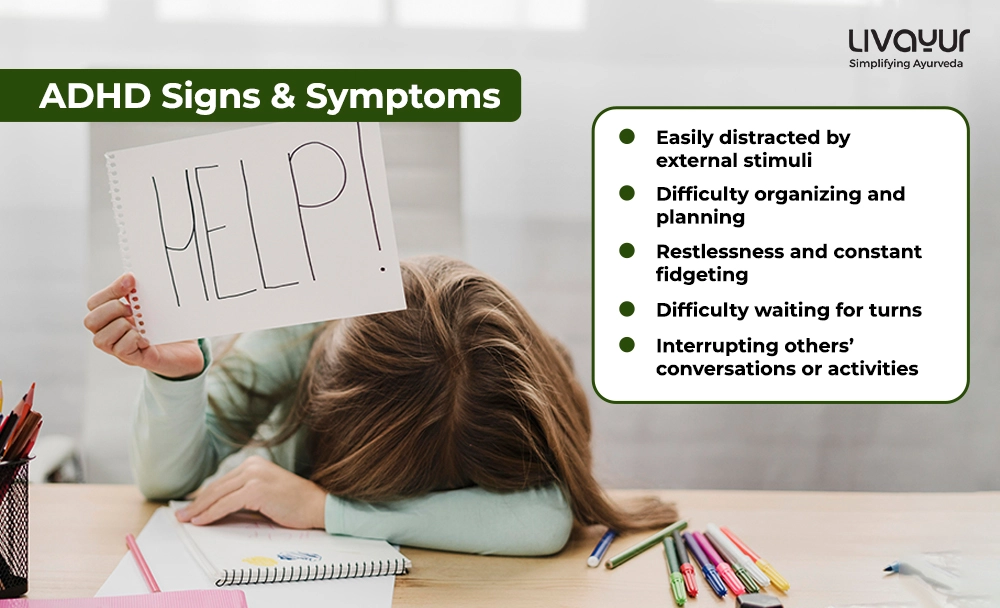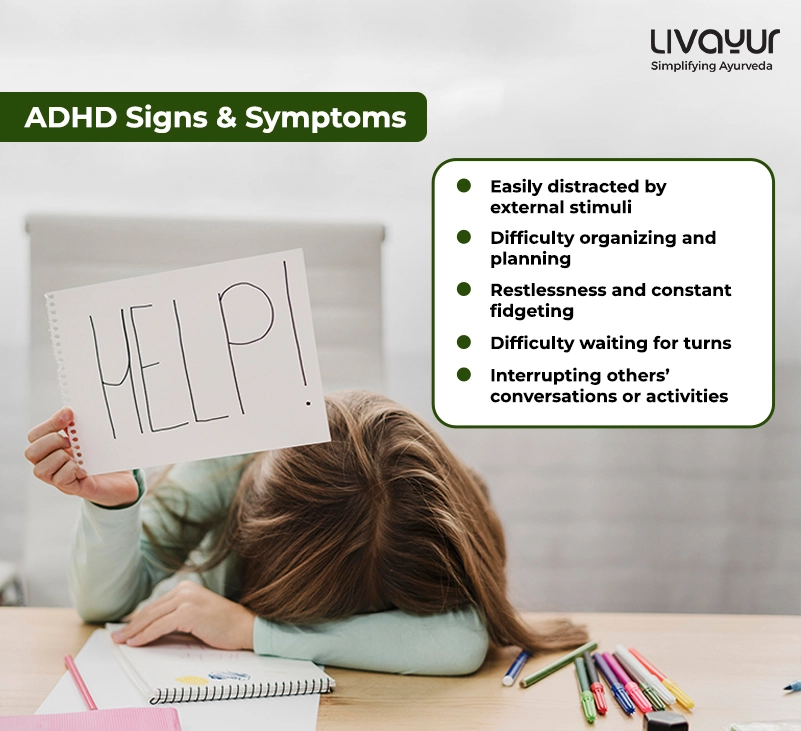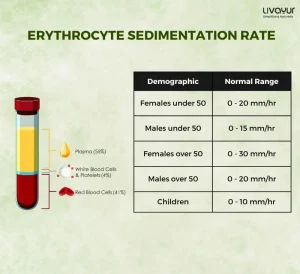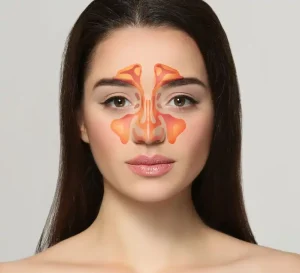
Attention-Deficit/Hyperactivity Disorder (ADHD) falls under the category of neurodevelopmental disorder. This type of disorder mostly affects school-age children, but the ADHD symptoms can persist well into adolescence and adulthood. It can potentially lead to considerable impairments in academics, career, and social functioning that can last for life. [1]
Research reveals that nearly 5 percent of primary school-age children have ADHD, and both genes and environmental factors have a role to play in it. It is characterized by persistent inattention, hyperactivity, and impulsivity patterns negatively impacting an individual’s daily life and quality of life.
If the condition is not treated in time, it may manifest inferior long-term psychosocial outcomes. [2] This article will explore ADHD meaning, symptoms, causes, treatment options, and more.
ADHD Meaning: What is ADHD?
ADHD’s full form is Attention-Deficit/Hyperactivity Disorder. To be precise, ADHD meaning and definition stands for a disorder that affects the brain’s executive functions, including the ability to pay attention, control impulses, and regulate behavior.
Individuals with ADHD often struggle with focusing, staying organized, and completing tasks. While ADHD is commonly diagnosed in childhood, it can persist into adolescence and adulthood, leading to challenges in various areas of life, such as academics, work, relationships, and self-esteem. [3]
There are 3 different types of ADHD:
1. Inattentive type (ADHD-I type)
2. Hyperactive, impulsive type (ADHD-H type)
3. A combined type (ADHD-C type) if both symptoms are present
ADHD Symptoms
The symptoms of ADHD disorder can be categorized into two main types: inattentiveness and hyperactivity-impulsivity. Some individuals primarily exhibit symptoms of inattention, while others display symptoms of hyperactivity-impulsivity. It is also possible to have a combination of both types. The following are common symptoms of ADHD:
Inattentiveness:
- Difficulty sustaining focus on tasks or activities
- Easily distracted by external stimuli
- Struggles to follow instructions or complete tasks
- Forgetfulness and frequently losing personal items
- Difficulty organizing and planning
Hyperactivity and impulsivity:
- Restlessness and constant fidgeting
- Excessive talking and difficulty engaging in quiet activities
- Impulsive behavior without considering potential consequences
- Interrupting others’ conversations or activities
- Difficulty waiting for turns [4]
Causes of ADHD
The exact ADHD causes are not yet fully understood. However, research suggests that multiple factors contribute to the development of the disorder. [4] These factors include:
1. Genetic factors:
ADHD runs in the family, indicating a genetic component. Studies have identified specific genes associated with ADHD, but multiple genes likely interact with environmental factors to increase the risk.
2. Environmental factors:
Prenatal exposure to substances like tobacco smoke, alcohol, or drugs, as well as premature birth or low birth weight, may increase the risk of developing ADHD. Also, early exposure to toxins, lead, or certain pesticides has been linked to ADHD symptoms. [5]
3. Brain structure and function
Certain brain areas involved in attention and impulse control, such as the prefrontal cortex, basal ganglia, and cerebellum may differ in individuals with ADHD. These differences may affect the regulation of neurotransmitters, such as norepinephrine and dopamine, which play a role in attention and behavior. [6]
ADHD Treatment
ADHD is a complicated disorder that needs a multimodal approach to treatment. The following are commonly utilized interventions:
Medication:
ADHD medications fall into two categories: Stimulant medications & Non-stimulant medications.
- Stimulant medications, such as methylphenidate and amphetamines, are often prescribed for managing and treating ADHD. These ADHD medicines can help improve attention, impulse control, and hyperactivity.
- Non-stimulant medications include antidepressants and alpha agonists, of which antidepressants like atomoxetine are the best known. Alpha agonists such as clonidine and guanfacine are also often prescribed but are more effective in younger children than adults. [3]
Behavioral therapy:
Behavioral interventions aim to teach strategies for effective management and treatment to individuals with this issue. This can include creating structured routines, setting goals, improving organizational skills, and learning coping mechanisms. Parent training programs are often recommended for children with ADHD, involving strategies to manage behavior and promote positive parenting techniques. [4]
Psychoeducation, therapy, and counseling:
Education about ADHD, its symptoms, and its impact can be valuable for individuals and their families. Counseling and psychotherapy can also be beneficial for addressing associated emotional and psychological challenges, improving self-esteem, and developing strategies to manage stress and interpersonal difficulties. [4]
Ayurvedic treatment:
Ayurveda offers a holistic approach to health and well-being. While Ayurveda may not specifically address ADHD as a distinct disorder, it focuses on balancing the mind and body to promote overall wellness.
Through the use of many herbs, therapies, and treatment procedures, Ayurveda also aims to deal with various issues of the Central Nervous System (CNS). Apart from treating cognitive deficits, Ayurveda helps improve memory and overall mental function. All these aspects help in managing the symptoms of ADHD.
Ayurveda suggests incorporating Panchendriya vardhan taila as this treatment enhances the functioning of all five senses. It improves memory (Smruti) and strengthens the senses (Indriya) and intellect (Medha). It is considered highly beneficial as an Ayurvedic medicine for ADHD. Most of the ingredients in this treatment have a range of qualities such as a sweet taste, a sweet post-digestive effect, a cooling energy, and the ability to pacify the Vata and Pitta Doshas. [7]
Supportive interventions:
Accommodations and support in educational and workplace settings can help individuals with ADHD succeed. This may involve preferential seating, extended time on tests, or modifications in task assignments. Creating a supportive and compassionate environment with clear and transparent expectations and providing positive reinforcement can also contribute to better outcomes. [4]
When to Seek Medical Advice?
It is never too late to seek medical help in case of ADHD. The earlier you consult a doctor the better. Effective medical intervention can help manage the symptoms of ADHD in a better way and make life easier for the individual with ADHD and his or her family members. [8]
Moreover, if the individual with ADHD complains of other symptoms such as severe headache or stomach ache or shows signs of failing memory, hallucination, and delirium, you must not delay the treatment.
FAQs
1. What are the preventive measures to reduce the risk of ADHD?
Certain preventive measures may help reduce the risk or severity of ADHD symptoms. Here are some strategies that can be beneficial:
• Healthy Pregnancy Care: Ensuring a healthy pregnancy can contribute to the well-being of the developing fetus. Some preventive measures during pregnancy include avoiding smoking, alcohol, and illicit drug use, seeking regular prenatal care, following the healthcare provider’s recommendations, maintaining a balanced diet with adequate nutrition, managing stress levels, and practicing relaxation techniques.
• Promoting Early Childhood Development: Early intervention and healthy development in early childhood may help reduce the risk of ADHD or mitigate its impact. Consider encouraging early stimulation and cognitive development through age-appropriate activities and play, providing a structured and consistent environment, encouraging healthy sleep patterns and regular physical activity, limiting exposure to excessive screen time, and promoting interactive activities instead, limiting exposure to environmental toxins and pollutants, and promoting healthy communication and emotional well-being.
2. Can a person affected with ADHD live a normal life?
Individuals affected by ADHD can live normal and fulfilling lives. They can develop strategies to manage their symptoms effectively with proper diagnosis, treatment, and support. Through medication, therapy, behavioral interventions, and accommodations, individuals with ADHD can excel academically, have successful careers, maintain healthy relationships, and achieve personal goals.
3. What are ADHD symptoms in adults?
Symptoms of ADHD in adults may include difficulty with organization and time management, chronic forgetfulness, impulsivity, difficulty sustaining focus, restlessness, difficulty completing tasks, frequent mood swings, low frustration tolerance, and challenges with maintaining relationships and employment.
4. Are there any dietary restrictions for ADHD?
There are no dietary restrictions for ADHD. However, an individual with ADHD must consume a healthy, balanced diet and avoid junk foods. As the treatment plan varies from patient to patient, doctors may prescribe a diet chart depending on the age and underlying health issues that the ADHD patient may suffer from.
Conclusion
ADHD is a neurodevelopmental disorder of a very complex nature. The problem affects individuals across the lifespan. It is characterized by inattention, hyperactivity, and impulsivity symptoms, which can significantly impact daily functioning. While the exact causes of ADHD are not fully understood, genetic and environmental factors likely play a role. Treatment for the condition typically consists of a combination of medication, behavioral interventions, psychoeducation, counseling, and supportive interventions. With appropriate management and support, individuals with ADHD can lead fulfilling lives and reach their full potential.
Disclaimer
This article is written from a health and wellness perspective and is not medical advice. Kindly seek the help of a certified medical practitioner before initiating any treatment.
References
- Attention-Deficit Hyperactivity Disorder (ADHD)
- Attention Deficit Hyperactivity Disorder
- Attention Deficit Hyperactivity Disorder
- Attention-Deficit/Hyperactivity Disorder
- What causes attention deficit hyperactivity disorder?
- The Emerging Neurobiology of Attention Deficit Hyperactivity Disorder: The Key Role of the Prefrontal Association Cortex
- AYURVEDIC MANAGEMENT OF ADHD (ATTENTION-DEFICIT AND HYPERACTIVITY DISORDER) WITH PANCHENDRIYA VIVERDHAN TAIL NASYA- A CASE STUDY
- Attention-Deficit/Hyperactivity Disorder in Adults: What You Need to Know
- Associations of sleep disturbance with ADHD: implications for treatment

























